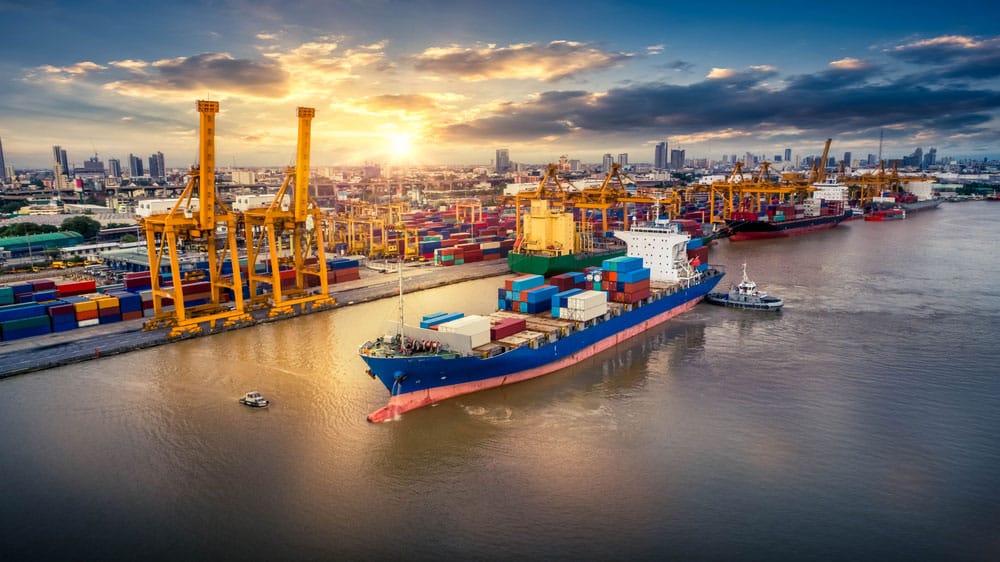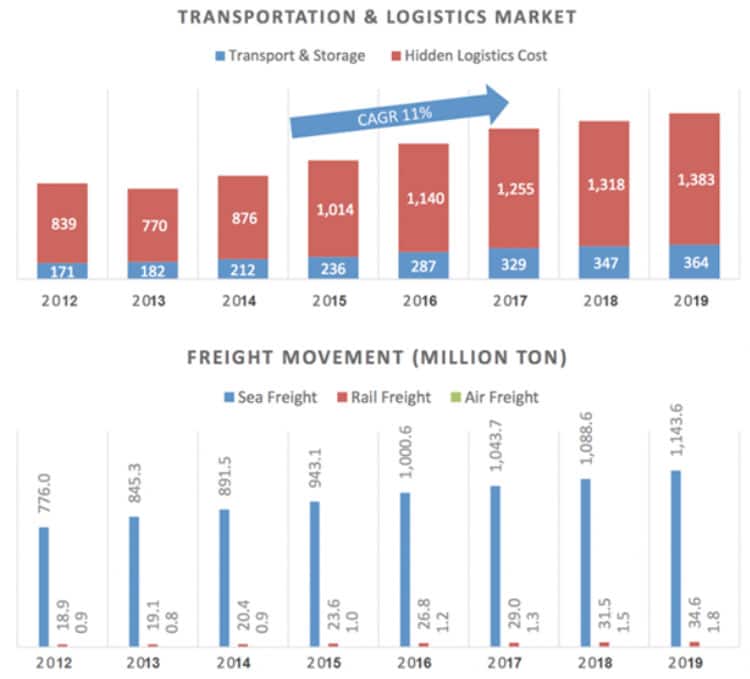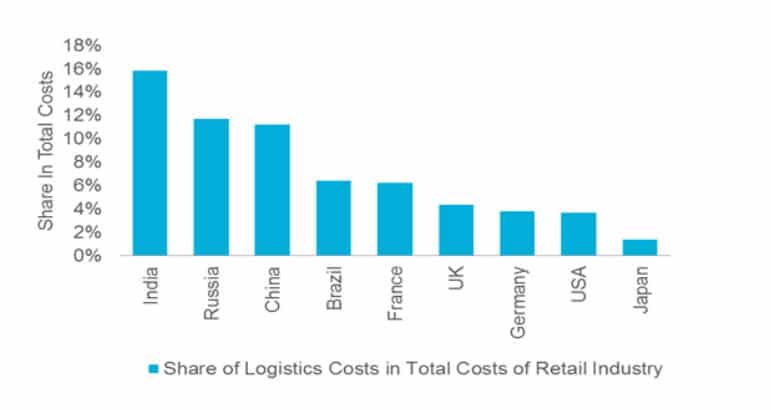Georgii Dubovyi: Strategies for Successful Sales Management in International Logistics

The competitiveness of companies in international logistics largely depends on their resources and abilities to manage them effectively. Successful companies adapt their strategies to rapidly changing conditions, which allows them to offer high-quality products and services at acceptable prices. It is important for organizations to be able to analyze the market and stand out among others, as high competition can stimulate them to improve.
A company may face various challenges, including issues related to international sales and marketing, supply, and foreign direct investments. In the academic literature, attention was initially focused on the reasons for internationalization, and then the aforementioned aspects were studied as important elements in the process. However, a review of existing research shows that the logistics aspects of internationalization have not received sufficient attention. In particular, the connection between strategies and international logistics remains underexplored [1].

Logistical integration refers to the coordination of all aspects of the supply chain – transportation, warehousing, inventory management, and information flows. Effective integration in logistics ensures real-time data exchange, minimizes delays, optimizes resource distribution, and improves overall operational efficiency. This is critical for enhancing competitiveness and improving economic performance in trade.
Efficiency is measured using, for example, the Logistics Performance Index (LPI) of the World Bank, which evaluates:
- The efficiency of customs procedures, such as clearance and regulatory aspects.
- The quality of infrastructure, including ports, roads, and rail networks.
- The competitiveness of international transportation.
- The logistical competence of service providers.
- The transparency of the supply chain through tracking and tracing.
- The timeliness of cargo delivery.
A strong logistics sector contributes to simplifying trade procedures and economic growth by reducing transaction costs and enhancing overall efficiency.
Economic growth can be analyzed using various models, such as:
- The Solow growth model, which emphasizes the importance of capital accumulation, labor force, and technological advancements, where logistics plays a role in boosting productivity.
- Endogenous growth theory, which focuses on investments in human capital and innovation, including logistics technologies, as factors for long-term economic growth.
- The gravity model of trade, which suggests that trade volume between regions depends on their economic size and distance. Efficient logistics reduces trade barriers and enhances economic interaction.
The relationship between logistics and economic growth in different countries and regions has been studied by many researchers, who provide the following key findings:
- Countries with developed logistics networks, such as Germany and Singapore, demonstrate higher trade efficiency and economic productivity.
- Research in countries like China and India shows that investments in logistics infrastructure significantly contribute to GDP growth and foreign trade.
- In some regions, improvements in logistics have led to benefits, but issues such as bureaucratic delays and regulatory inefficiency still persist [2].

Global opportunities imply the ability of companies to effectively interact and coordinate their operations at the international level, giving them a competitive advantage. These opportunities must adapt to the specifics of each country, as well as integrate internal and external resources to successfully assess opportunities in global markets. Therefore, to remain competitive in the context of globalization, companies must constantly update their strategies, technologies, and marketing approaches.
Marketing and trade opportunities play a key role in the successful implementation of strategies. Companies must develop marketing and sales skills to effectively respond to market needs and competition. Effective interaction with customers and the ability to engage in aggressive sales become important success factors in international markets.
Competition in international logistics also requires companies to constantly monitor the actions of competitors and adapt their strategies. The intensity of competition can have both positive and negative effects on organizational effectiveness, so it is important to develop strategies that take into account internal resources and external obstacles.
Financial performance and growth indicators are the main criteria for assessing the success of companies. Logistics efficiency, in turn, influences the ability of companies to achieve their goals and reduce costs. Therefore, the integration of global opportunities, marketing strategies, and sales management becomes critical to achieving competitive advantages in international logistics [3].
Digital Transformation in International Sales
The rapid development of digital technologies has significantly changed the management of international sales, allowing companies to optimize processes and improve customer service quality. Artificial intelligence, automation, and big data analytics have become key tools for sales forecasting and customer relationship management. Chatbots and predictive analytics help personalize interactions and make data-driven decisions, enabling companies to track customer behavior more effectively and identify new market opportunities.
With the growth of e-commerce, companies must integrate online and offline channels to provide a unified experience for consumers. Investments in digital platforms and social commerce allow brands to expand their audience and strengthen their position in international markets.
In the context of digitalization, data becomes a valuable asset. Companies use it to find customers and personalize offers. CRM systems help track customer interactions and optimize sales strategies, providing a competitive advantage.
While digital transformation brings significant benefits, it also requires investment and employee training. Companies must overcome barriers such as cyber threats and changes in organizational culture. Successful adaptation requires continuous learning and the integration of innovative tools [4].
Cultural Adaptation in International Sales
Entering international markets requires understanding cultural differences that influence consumer behavior and negotiation styles. Companies that do not account for these differences risk losing customers and damaging their reputation. Developing culturally adapted sales strategies and training employees will help build trust-based relationships with customers.
Localization includes adapting sales and marketing methods to regional preferences. This may relate to pricing, payment methods, and communication channels. Brands that take cultural differences into account can establish stronger connections with customers and enhance their competitiveness.
Companies face challenges when implementing localization strategies, such as language barriers and differences in technological maturity levels. Investments in multilingual teams and partnerships with local distributors can help overcome these obstacles. Flexible thinking and continuous learning based on customer interactions will allow companies to improve their strategies and achieve long-term success in international markets [4].
Thus, to achieve sustainable success on the global stage, organizations need to develop their logistics and marketing strategies, considering both internal opportunities and external barriers. Continuous learning, innovation, and flexibility in sales approaches will be the key to successfully implementing international strategies and achieving strong financial performance. Ultimately, companies that can effectively integrate their global opportunities and adapt to changes will have a significant advantage in the competitive environment of international logistics.
References:
- Marchet G., Melacini M., Perotti S., Tappia E. Setting the International Logistics Strategy: Empirical Investigation of Its Evolutionary Stages. – IFIP Advances in Information and Communication Technology 438:50-58. – 2014.
- Jane K. Entrepreneurial Marketing Strategies for International Market Entry: Insights from Oman’s Logistics Sector. – 2025.
- Adiguzel Z., Çakır F.S., Zehir S.Y., Zehir C. Impact of global capabilities on performance in international logistics companies. – International Journal of Productivity and Performance Management. – 2024.
- Hussain K., Kollwitz E. Global Trends in Commercial Sales Management: A Review of International Strategies and Market Adaptation. – 2025.
Abstract: This article analyzes the competitiveness of companies in international logistics and identifies the main factors affecting their effectiveness. The main goal of the study is to understand the relationship between internationalization strategies and logistics processes, as well as to assess the role of digital transformation and cultural adaptation in international sales. The work considers aspects of logistics integration, such as supply chain management, the use of modern technologies and analytics to optimize operations, as well as the importance of taking into account cultural differences when entering international markets. The results of the study show that companies that are able to adapt their strategies to changes in the market environment and effectively use data have significant competitive advantages. The practical application of the obtained results can be realized through the optimization of logistics processes, the development of marketing strategies and the introduction of innovative technologies, which will allow organizations to improve their efficiency and strengthen their positions in global markets.
Have you read?
The World’s Best Medical Schools.
The World’s Best Universities.
The World’s Best International High Schools.
The World’s Best Business Schools.
The World’s Best Fashion Schools.
The World’s Best Hospitality And Hotel Management Schools.
Bring the best of the CEOWORLD magazine's global journalism to audiences in the United States and around the world. - Add CEOWORLD magazine to your Google News feed.
Follow CEOWORLD magazine headlines on: Google News, LinkedIn, Twitter, and Facebook.
Copyright 2025 The CEOWORLD magazine. All rights reserved. This material (and any extract from it) must not be copied, redistributed or placed on any website, without CEOWORLD magazine' prior written consent. For media queries, please contact: info@ceoworld.biz








